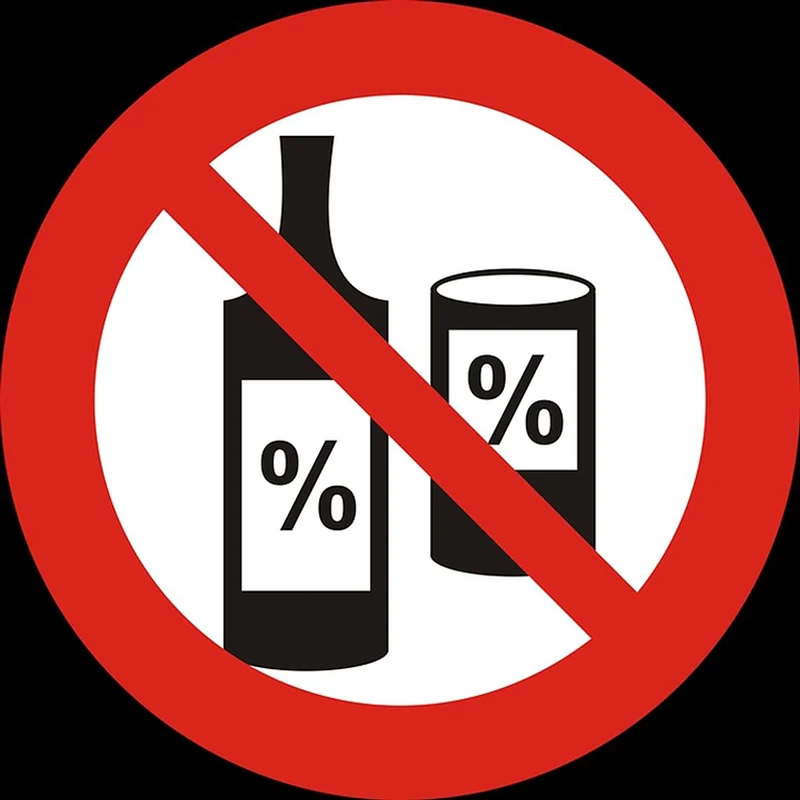More and more states are adopting the WHO's statement that every drop of alcohol is harmful. However, the recommendations are now being sharply criticized. Some of the scientists are very close to the abstinence movement Movendi.
In August 2024, the German Society for Nutrition (DGE) explicitly recommended in a position paper: 'Best to have zero alcohol.' Data from studies showed that there is no risk-free amount for safe alcohol consumption. Even small amounts could increase the risk of diseases and thus endanger health: 'The DGE therefore recommends abstaining from alcoholic beverages.' Thus, it adopts the position of the World Health Organization (WHO), which has been stating for some time: 'There is no health-safe amount of alcohol consumption.'
Two of the protagonists, who consider every form and amount of alcohol to be harmful and publish this view in reputable scientific publications, are the Canadian scientists Dr. Tim Stockwell and Dr. Tim Naimi. Stockwell earned his PhD in psychology and was the director of the Canadian Institute for Substance Use Research from 2004 to 2010. The medical doctor Naimi succeeded him there. Both have devoted their entire professional lives to the addiction to drugs and alcohol and their health effects. Both lead expert committees that also advise the Canadian, US government, and WHO. Recently, Stockwell published a frequently cited study stating that there is 'no safe amount of alcohol consumption.' This publication is also relied upon by WHO and DGE.
Naimi’s and Stockwell’s work and their recommendations are now strongly questioned by many scientists (wein.plus reported). Health authorities in the US and Canada rejected Naimi’s recommendations on alcohol consumption for adults. Members of the US Congress criticized in a letter to the National Institute of Health (NIH) that he had 'not adhered to research protocols.' However, Stockwell’s work is also critically questioned by other researchers. His statements are not considered established science, the accusation goes. Rather, Stockwell only picks out individual aspects that support his agenda, said former British government scientist Richard Harding in an interview with the British newspaper The Telegraph: 'Dr. Stockwell’s research competence is essentially epidemiology, that is, the study of populations. One records people’s lifestyles, sees what diseases they develop, and tries to correlate the disease with aspects of their lifestyle. But that is only a correlation, an association. Epidemiology alone can never establish causality. And in this particular case, Dr. Stockwell selected six out of 107 studies that he focused on. One could say he cherry-picked them.'
This accusation must also be addressed by the German Society for Nutrition: In response to its recommendation, the German Wine Academy, which is part of the "Wine in Moderation" network, states: 'The recommendations are derived from pure observational studies (cohort studies) that cannot establish causal relationships but rather show correlations, i.e., the statistical coincidence of observations.' The DGE itself even points this out in its current position paper: 'The significance of meta-analyses of cohort studies on the relationship between alcohol consumption and overall mortality is severely limited by methodological difficulties (...). The estimates of alcohol-related mortality risk vary significantly depending on the study design and are thus difficult to interpret.'"

Dr. Tim Naimi’s recommendations have not been accepted in Canada and the US.
Boston UniversityIt seems likely that Stockwell and Naimi may be pursuing their own agenda. Both have documented connections to Movendi International. Founded in the USA in 1851 as the 'International Order of Good Templars' ('Guttempler'), it was originally an abstinence and temperance organization that advocated against alcohol consumption and for the promotion of a non-alcoholic lifestyle. In 2012, the name was changed to 'Movendi International' to reflect the modern orientation and broader mission of the organization for health and social justice.
Today, Movendi claims to be the 'largest social movement for development through alcohol prevention worldwide. Our vision is a life for all people where they can realize their full potential and live free from the harms caused by alcohol and other drugs.' This non-governmental organization (NGO) is an official partner of WHO and the United Nations Development Program (UNDP). Movendi's goal is to 'influence policy (...), to raise awareness of the diverse interactions of gender-based violence, harmful alcohol consumption, as well as HIV and tuberculosis, and (...) to strengthen health policy.'
In Germany, the Order of Good Templars is part of Movendi International and is a member of the Paritätischer Wohlfahrtsverband as well as the German Main Association for Addiction Issues. The Good Templars also advocate 'peacefully for a world where people can develop without being hindered by alcohol and other drugs and can live in self-determination, personal responsibility, and health,' because: 'Alcohol is a serious barrier to development on a personal, community, societal, and global level.'
Tim Stockwell has long been an important advisor to WHO. He has participated in several initiatives, including the development of reports, guidelines, and policy recommendations that influence global alcohol policy. However, he also has very close ties to organizations like Eurocare, whose goal is to 'prevent and reduce alcohol-related harm within European political decisions regarding alcohol.' This 'European Alcohol Policy Alliance' is an alliance of NGOs that, according to their own statements, collaborates with the EU Commission, the European Parliament, the OECD, and WHO. Dr. Stockwell is a member of their expert committee. Eurocare has also led several EU-funded projects – and receives funding from the Good Templars.

Dr. Tim Stockwell advocates for 'Zero Alcohol.' Yet his research methods are disputed by many scientists.
UVicFurthermore, Stockwell was president of the 'Kettil Bruun Society' from 2005 to 2007, a think tank that emerged from the international abstinence congresses. Their annual conference in 2023 in Johannesburg was sponsored by Movendi. For the Australian organization 'The Foundation for Alcohol Research and Education' (FARE), he signed an open letter calling for WHO not to engage with alcohol lobbyists anymore.
Stockwell can also be heard on Spotify: In the podcast of 'Tribe Sober,' an association for former alcoholics that advocates for restrictions (motto: 'Inspiring an alcohol-free life'), he is introduced in one episode as a 'man on a mission he has been fighting for years.' He and Tim Naimi were also interview partners in an official podcast of Movendi. Together, they also wrote an article for the Good Templars organization in 2016. All these connections can be found on the websites of the organizations and universities where Stockwell and Naimi have worked and are working. Both are compensated for their lectures and contributions by the abstinence movements, which Stockwell does not deny: 'I participated in a meeting funded by the Swedish abstinence organization and wrote material they published. I had connections to the International Order of Good Templars. I attended some of their meetings but am not a member.'
Many scientists also reject Stockwell's and Naimi's motives and approaches. They criticize the two as protagonists of a global abstinence movement that has been working for years to ban alcohol from society worldwide. Stockwell says in an interview with The Telegraph that his connections to abstinence organizations are only 'fleeting.' He accuses his critics of being 'funded by the alcohol lobby and living off portraying the relationship between alcohol and health positively.'.

Anti-alcohol movements are trying to influence politics.
Facebook/MovendiIntChristopher Snowdon, head of the 'Lifestyle Economics' section at the think tank 'Institute of Economic Affairs' (IEA) in Great Britain and author, explains: 'Dr. Stockwell has never conducted his own primary research on this topic to my knowledge. He repeatedly produces systematic reviews aimed at obscuring the benefits of moderate drinking. He and his colleagues have re-evaluated decades of scientific evidence that supported the health benefits of alcohol.' Snowdon writes on his blog 'Velvet glove, iron fist': 'Stockwell's approach to alcohol issues is refreshingly simple. If he wants something to be true, he says it is true – regardless of what the evidence says. Since most journalists are unfamiliar with the evidence and trust anyone who sounds like a doctor (Stockwell has a degree in psychology and philosophy), this is more effective than you might think.'
The alcohol policy specialist at Brock University in Ontario, Dr. Dan Malleck, stated to The Telegraph: 'Why investigate the harm that alcohol consumption can cause? Because that's where the money is. Most of the budget comes from government funding, and governments are more interested in protecting their citizens than encouraging them to have fun. So people like Stockwell and Naimi have doubled down on researching harms because that's where the money is.'